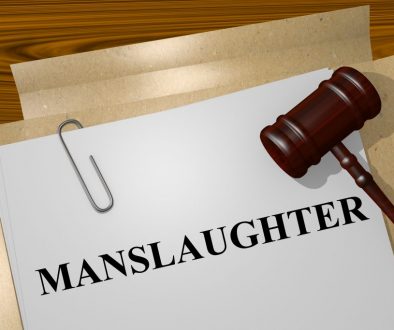Jury Instruction Impact On Recent Murder Trials
The recent George Zimmerman acquittal has dominated all media outlets and will more than likely maintain the interests of legal analyst and possibly even cause State and Federal legislatures to amend criminal codes. George Zimmerman was found not guilty of all counts which included the charge of Second Degree Murder and the lesser included offense of Manslaughter. While the prosecution did ask the trial judge to instruct the jury that they could consider the charge of Third Degree Murder (felony murder) the judge denied that request as, in his interpretation of the law, the evidence at trial did not support such a charge and the jury instructions which would come with it.
Jury instructions are a topic which rarely receive any attention. Those unfamiliar with the legal profession or those who have never served on a jury are probably not even aware that prior to the start of jury deliberations a great deal of time is taken to instruct the jury on what they may or may not consider during the course of those deliberations.
Jury instructions not only include the elements of the charges against the defendant which the prosecution must prove beyond a reasonable doubt, they also include instructions on other evidentiary issues. Subjects such as the defendant’s good character, circumstantial versus direct evidence, inconsistent statements, and even statements made by the attorneys during the course of the trial are discussed in jury instructions. Prior to a judge giving instructions, attorneys are able to make recommendations to the trial judge on what instructions the judge should explain to jurors. Jury instructions are also discussed during jury selection to determine if a prospective juror maintains any biases against the defendant or the justice system. Many of the questions asked on juror questionnaires reflect the issues discussed in jury instructions most specifically questions dealing with an individual’s ability to follow the law despite personal beliefs, prior knowledge gained through extraneous sources, such as the media.
Clients will almost never ask their attorney about jury instructions but the Trayvon Martin case presents an opportunity to discuss their importance and why both the defense and prosecution should focus their arguments around the content of jury instructions. In the Martin case the jury was provided with the instruction for Second Degree Murder which according to Florida law requires that the jury find that the defendant intended to kill the victim. Unlike First Degree Murder there is no requirement that the jury find any type of premeditation or deliberation. Premeditation and deliberation is what separates First Degree Murder from Second Degree Murder. While the jury was not instructed on Third Degree Murder, this lesser degree of murder is otherwise known as felony murder and requires a killing which derives from some type of felony offense such as a robbery, burglary, and nearly any other type of felony offense. While the Zimmerman prosecution did argue for Third Degree Murder the judge found no underlying felony from the evidence presented at trial and therefore did not give an instruction on Third Degree Murder.
Obviously First Degree Murder is the highest degree of a wrongful killing and any other killing, including manslaughter would be included as a lesser included offense provided that the evidence presented at trial supported the elements of these lesser included offenses. The judge in the Zimmerman case did instruct the jury on manslaughter which, while not defined as murder, is nonetheless a killing. To convict an individual of manslaughter it is not necessary that the prosecution, under Florida law, established that Zimmerman intended to kill Martin but simply committed a killing that was not justified or excusable. Manslaughter is sometimes referred to as imperfect or improper self-defense. If you recall form the Zimmerman trial, his defense theory was self-defense as they argued that Zimmerman acted based on Martin’s actions toward him. The jury in the Zimmerman case was not convinced beyond a reasonable doubt that Zimmerman killed Martin intentionally with some type of malice constituting a murder nor was it convinced that Zimmerman’s actions were unjustified constituting manslaughter.
In closing, Trayvon Martin’s death was tragic as the case of any young person regardless of their race. The purpose of this short article, however, is not to offer my personal opinion on whether the jury reached the proper verdict. If you are charged with a crime it is very important that your attorney discuss with you jury instructions and explain how the defense strategy addresses the elements contained in those instructions.
Contact Our Criminal Defense Lawyers in PA & NJ
Please click here to contact our Philadelphia criminal defense lawyers. We offer free case reviews and serve the following areas in Pennsylvania and New Jersey, Atlantic City, Camden, Cherry Hill, Chester, Conshohocken, Doylestown, Media, Norristown, Philadelphi


